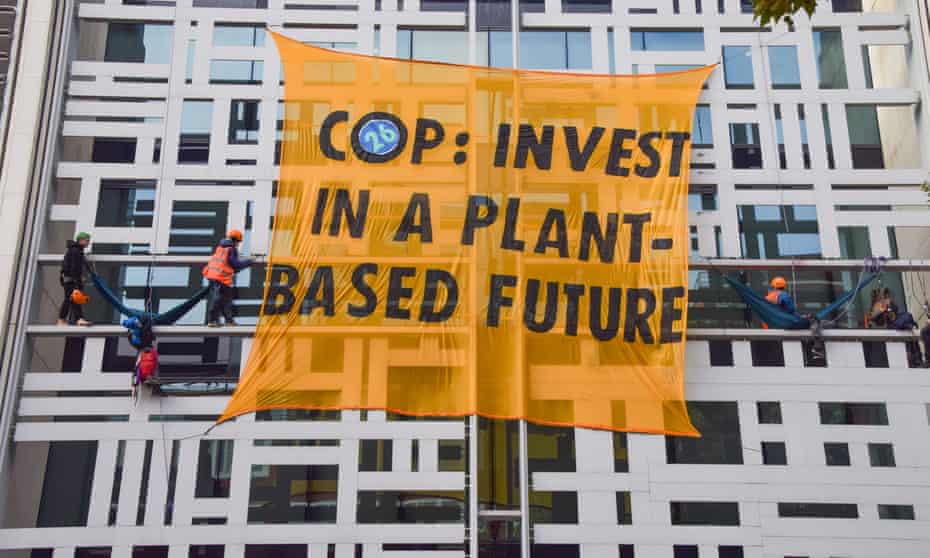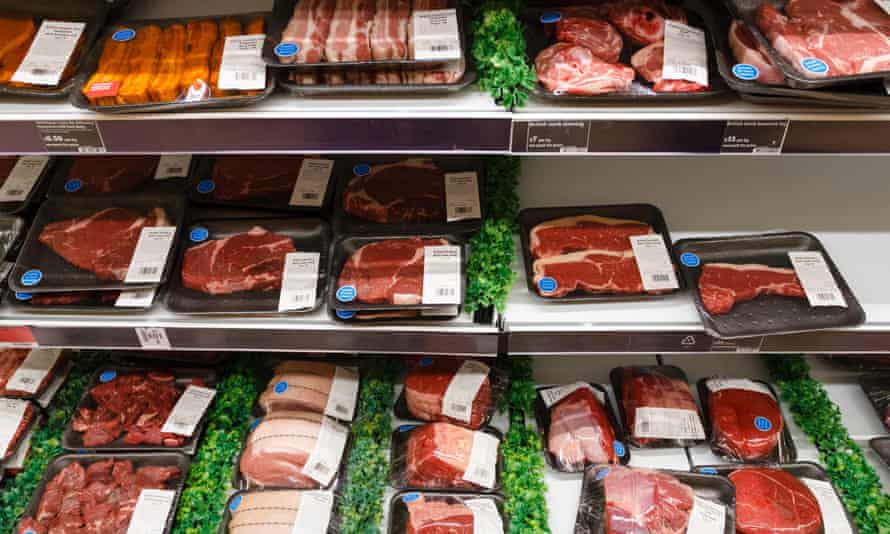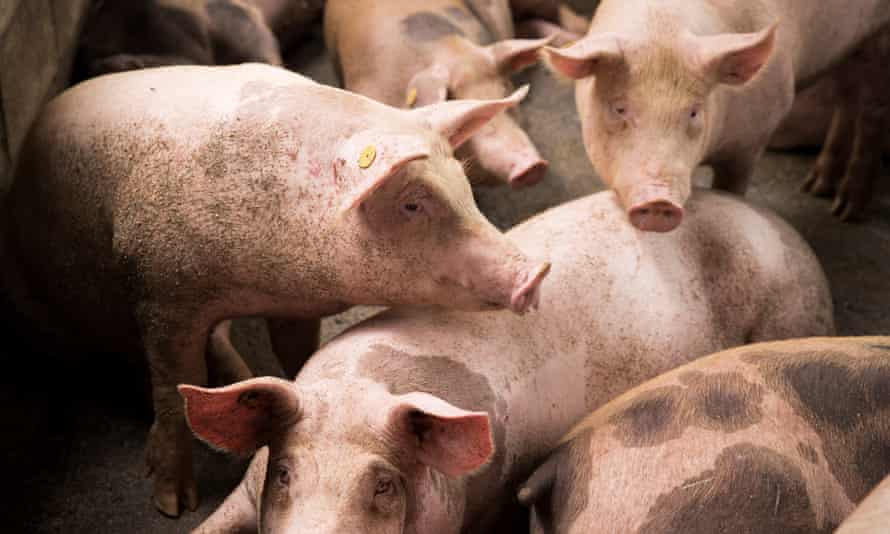Animals farmed: meat taxes, death in farming and anti-climate lobbying
Welcome to our monthly roundup of the biggest issues in farming and food production, with must-read reports from around the web

Last modified on Wed 3 Nov 2021 07.41 EDT
Cop26 and the climate ‘hoofprint’
As UN climate talks take place in Glasgow, the role of cows and other farm animals in human-induced climate emissions – and what can be done about it – has been in the spotlight.
The world’s biggest meat and dairy companies are being “given a free pass by governments” over the lack of clear targets to reduce climate emissions, say campaigners, who have published a new ranking of the worst offenders.
Cutting methane is the biggest opportunity to slow global heating between now and 2040, say experts, who lament that “no country has a real target to reduce its livestock-related emissions or meat consumption”.
Brazil and Argentina, two of the biggest producers of beef products and animal feed crops in the world, are reported to have argued strongly against UN recommendations that reducing meat consumption is necessary to cut greenhouse gas emissions.
The net zero climate pledges made this year by the world’s largest meat company, JBS, have been critiqued as an attempt to “avoid scrutiny from shareholders and investors” in a new report by the Institute for Agriculture and Trade Policy.
Downing Street swiftly denied that it was planning to introduce a meat tax, after a proposal was published and then withdrawn within a few hours. Nonetheless, Tory MPs were quick to publicise their opposition. “I’m a huge meat eater. I think it is wonderful,” said Conservative MP Tom Hunt.

Meanwhile, Britons have cut their meat consumption by 17% over the past decade, new analysis shows, but this does not go far enough to meet targets for healthy diets and sustainable food production, say researchers.
Other news from around the world
Microplastics have been found in the blood of cows and pigs, new Dutch research reveals. The study is believed to be the first in the world to show that microplastic particles can be absorbed into the blood of mammals. Researchers say it raises serious concerns about the presence of microplastics in the food chain and air.
After our investigation into Europe’s meat industry, which revealed exploitation of workers was rife, Spanish news website el Diario published its own report on the topic. Its research, it says, shows “despite slight improvements, slaughterhouses remain one of the worst places in the country to work … where practically all employees are migrants who face harsh work conditions and accidents, with thousands of workers outside the sector’s collective bargaining agreement”.
Meanwhile, in the US, the Biden administration is to stop immigration enforcement raids in meat plants and will focus on targeting companies that continually violate labour laws by hiring undocumented workers.
The US Department of Agriculture (USDA) is to work with the meat industry to try to reduce salmonella in poultry. There are more than a million consumer illnesses due to salmonella every year, with more than 23% of those due to the consumption of chicken and turkey. The USDA has faced calls to make chicken processing companies more responsible for their supply chain and tackle contamination before it comes into the slaughterhouse.
The USDA is facing a lawsuit for failing to require humane handling of poultry at slaughter. Animal welfare organisations say every year government inspectors document tens of thousands of birds dying before they reach slaughter plants. Birds in plants are also subjected to intentional acts of cruelty by workers, campaigners say, including being kicked, hit, mutilated, driven over, or dumped on to conveyor belts with visibly broken legs and wings.
Elsewhere on Animals farmed
John Vidal revealed the emergence of at least eight types of bird flu that can kill humans, and how industrial chicken production is a risk for breeding the next pandemic.

Milli Legrain explored the growing panic in the US pork sector as the deadly pig disease African Swine Fever led to the culling of tens of thousands of pigs belonging to small producers in the Dominican Republic.
And we had an exclusive report on the role of pig farms in contributing to the pollution of one of Europe’s largest saltwater lagoons, in the Murcia region of south-east Spain. It comes as Spain is poised to overtake Germany as the EU’s top pork producer this year.
Other news from the UK
The cost of chicken is expected to rise by more than 10%, the owner of the UK’s biggest poultry supplier has warned. Ranjit Singh Boparan, who owns Bernard Matthews and 2 Sisters Food Group, said food is “too cheap” and consumers should expect “a reset”.
The government stepped in to counter a growing crisis on pig farms by allowing butchers to enter the UK on temporary visas. The environment secretary, George Eustice, announced that butchers in abattoirs and meat processing plants dealing with pigs will be allowed to come to work in Britain for six months.
A new strengthened trade and agriculture commission has been launched to scrutinise future trade deals. The government says the move “reconfirms that maintaining the UK’s high standards will be a red line in all our trade negotiations, with no compromise on our high environmental protection, animal welfare or food standards”.
Finally, we’ve had a short film on death in farming. The Guardian’s Richard Sprenger stepped inside a farm, an abattoir and a knacker’s yard to see how the industry deals with dead and dying animals, and what that says about our own humanity.
Share your stories and feedback
Thank you to everyone who has been in touch to share their thoughts on the series. Terry Pride emailed to share the story of a group of ranchers in Nebraska who have raised more than $300m (GBP240m) to build a sustainable beef plant.
To air your views, or share your experiences and stories from inside the farming industry, please contact us at: animalsfarmed@theguardian.com.
And if you want to receive this Animals farmed monthly update via email, you can sign up here to get a roundup of the biggest farming and food stories across the world and keep up with our investigations.

